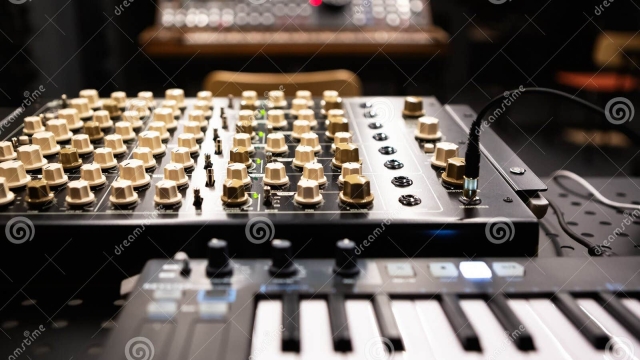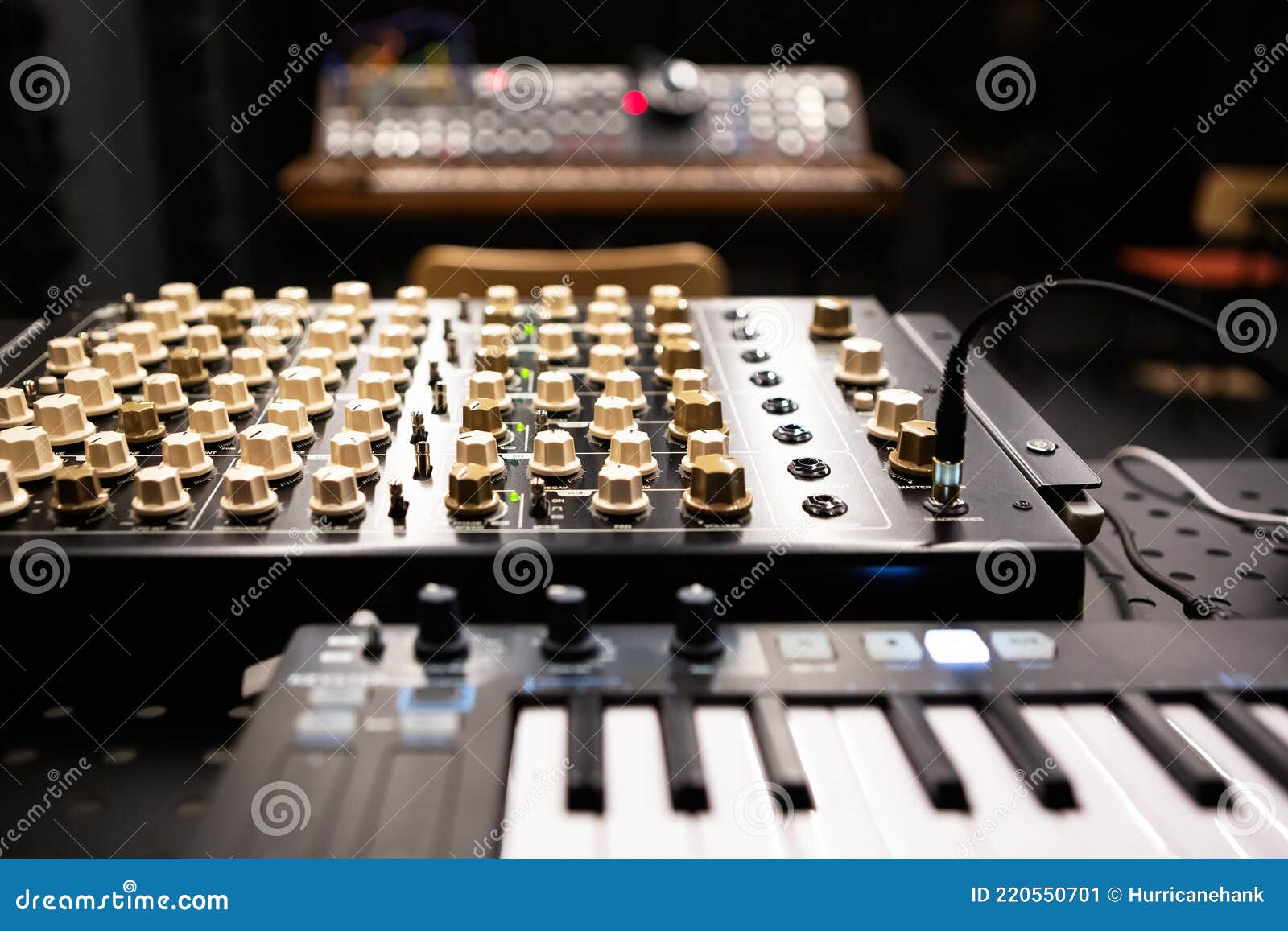Harmony Unleashed: The Perfect Pairing of Musical Instruments and Amplification Equipment
Joe Howard -
The magic of music lies not only in the skillful hands of musicians but also in the harmonious partnership between their chosen instruments and cutting-edge amplification equipment. The symbiotic relationship between musical instrument and amplification equipment has revolutionized the way we experience and appreciate music. From the soaring melodies produced by grand pianos to the electrifying riffs of electric guitars, these instruments have the power to captivate and move us. However, it is the role of amplification equipment that takes the sound to new heights, allowing it to resonate through concert halls, enchanting audiences with its sheer brilliance.
The journey to perfecting this pairing has been a constant evolution, driven by the quest for optimal sound quality and performance. Today, musicians are spoiled for choice when it comes to amplification options, each designed to enhance the unique characteristics and nuances of their instruments. Whether it is the warm and mellow tones produced by an acoustic guitar or the raw power and distortion of an electric guitar, amplification equipment plays a pivotal role in amplifying and shaping these sounds.
In this article, we will delve into the captivating world of musical instrument and amplification equipment, exploring the various technologies and innovations that have transformed the way we play, listen, and experience music. Together, we will uncover the secrets behind the seamless integration of these two elements, unlocking the true potential of both musicians and their instruments. Get ready to embark on a journey that will reveal the true power of harmony unleashed, as we explore the perfect pairing of musical instruments and amplification equipment.
Understanding Instrument and Amplifier Compatibility
In order to achieve the best sound quality and performance, it is important to understand the compatibility between musical instruments and amplification equipment. The synergy between these two elements is crucial for creating a harmonious and powerful sound.
When it comes to finding the perfect pairing, one must consider the type and characteristics of the musical instrument. Each instrument has its own unique sound and tonal qualities, and it is essential to choose an amplifier that complements and enhances these characteristics. For example, a guitar with single-coil pickups may benefit from a clean and transparent amplifier, while a guitar with humbucker pickups might require an amplifier with more gain and a warmer tone.
Furthermore, the power and wattage of the amplifier should be taken into account. Different instruments may require varying levels of amplification, and using an amplifier that is too powerful or not powerful enough can result in an unbalanced sound. It is important to match the wattage of the amplifier to the needs of the instrument, ensuring that the sound remains clear and undistorted.
Lastly, the overall genre and style of music being played should also be considered. Certain genres may benefit from specific amplifier features, such as built-in effects or equalization controls. By understanding the intended musical style, one can choose an amplifier that provides the necessary tools to achieve the desired sound.
In conclusion, understanding the compatibility between musical instruments and amplification equipment is crucial for achieving optimal sound quality. By considering factors such as instrument type, power requirements, and musical style, one can ensure a harmonious and perfect pairing that enhances the musical experience.
Choosing the Right Amplification Equipment
When it comes to finding the perfect amplification equipment for your musical instrument, it’s important to consider a few key factors. The right amplification can truly make or break the sound of your instrument, so it’s worth investing your time and effort into making the right choice.
First and foremost, you’ll want to consider the type of musical instrument you’re using. Different instruments have different sound characteristics and requirements when it comes to amplification. For example, electric guitars typically require guitar amplifiers, while keyboards may benefit from a keyboard amplifier or a PA system. Understanding the unique qualities of your instrument will help you narrow down your options.
Next, consider the venue or setting in which you’ll be performing. If you’re playing in smaller, intimate spaces, a compact amplifier may be sufficient. On the other hand, for larger venues or outdoor performances, you may need a more powerful amplifier to ensure your sound reaches the entire audience. Take into account the size of the venue, the acoustics, and the level of amplification required to achieve the desired sound projection.
Lastly, budget is a crucial factor. Amplification equipment can have a wide range of price points, from budget-friendly options to high-end, professional-grade gear. Determine what you’re willing to invest and research within that range to ensure you find a reliable and quality amplifier that suits your needs.
By considering these factors – the type of instrument, the venue, and your budget – you’ll be well on your way to choosing the right amplification equipment for your musical needs. Remember, finding the perfect pairing of musical instrument and amplification equipment is key to achieving harmony and unleashing the full potential of your music.
Optimizing the Sound Quality
When it comes to creating a harmonious blend of musical instruments and amplification equipment, optimizing the sound quality is paramount. The seamless integration of these two elements can make all the difference in producing a captivating and immersive musical experience.
One crucial aspect of achieving optimal sound quality is ensuring the correct pairing of musical instruments and amplification equipment. Each instrument has its unique tonal characteristics, and amplification equipment should be chosen accordingly to enhance and complement those qualities. By selecting the right amplification equipment, musicians can amplify their instruments’ natural tones and present their music in its purest form.
Another factor that contributes to sound quality optimization is proper setup and calibration. Attention to detail in the arrangement of instruments and speakers, as well as precise adjustments of levels and EQ settings, can significantly impact the overall sonic balance. By fine-tuning the setup, musicians can achieve a cohesive and immersive soundstage, where every instrument and its amplification equipment work together in perfect harmony.

Lastly, ongoing maintenance and care play a crucial role in optimizing sound quality. Regular cleaning and inspection of musical instruments and amplification equipment ensure that they remain in top condition. This practice not only extends their lifespan but also guarantees consistent performance and reliable sound reproduction. By taking care of their gear, musicians can continue to deliver exceptional sound quality throughout their musical journeys.
In conclusion, achieving the perfect pairing of musical instruments and amplification equipment requires attention to detail and a commitment to optimizing sound quality. By selecting the right equipment, fine-tuning the setup, and maintaining their gear, musicians can unlock the full potential of their instruments, creating a harmonious blend that is pleasing to the ears and captivating to the soul.
Archives
- December 2025
- November 2025
- October 2025
- September 2025
- August 2025
- July 2025
- June 2025
- May 2025
- April 2025
- March 2025
- February 2025
- January 2025
- December 2024
- March 2024
- February 2024
- January 2024
- December 2023
- November 2023
- October 2023
- September 2023
- August 2023
- July 2023
- June 2023
- May 2023
- April 2023
- March 2023
- February 2023
- January 2023
- December 2022
- November 2022
- October 2022
- September 2022
- August 2022
- July 2022
- June 2022
- May 2022
- April 2022
- March 2022
- February 2022
- January 2022
Calendar
| M | T | W | T | F | S | S |
|---|---|---|---|---|---|---|
| 1 | 2 | 3 | 4 | |||
| 5 | 6 | 7 | 8 | 9 | 10 | 11 |
| 12 | 13 | 14 | 15 | 16 | 17 | 18 |
| 19 | 20 | 21 | 22 | 23 | 24 | 25 |
| 26 | 27 | 28 | 29 | 30 | 31 | |